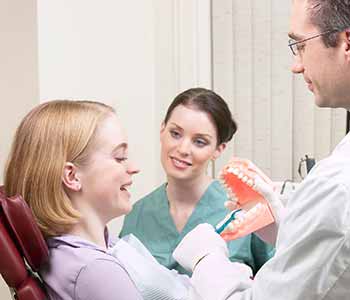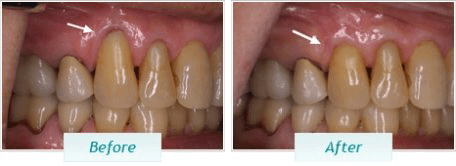The symptoms, diagnosis, and treatment of TMJ disorders in San Francisco

It is estimated that over ten million Americans suffer from TMJ (temporomandibular joint) disorder. These small, triangular shaped joints are situated just in front of the ears. They are lined with cartilage, so they move easily with a smooth gliding motion when they are functioning correctly.
These joints are responsible for the up and down and side-to-side movements that allow functions such as chewing, speaking, yawning, and swallowing. When problems prevent the complex system of bones, discs, ligaments, and muscles from functioning properly, it can result in painful TMJ disorder.
Fortunately, San Francisco dentist, Dr. Leo Arellano and his highly trained team can help patients find relief from this discomfort. The process begins with recognizing the signs of this disorder.
Symptoms
- Pain radiating from the jaw, face, ear, or neck
- Pain in the jaw joint or chewing muscles
- Locking of the jaw, limited movement, or stiff jaw muscles
- Changes in the bite (the way the teeth meet when the mouth is closed)
- Grating, popping, or clicking in the joints, especially when opening and closing the mouth. In some cases the noise is accompanied by pain, but not always
- Swelling in the side of the face
- A feeling of facial fatigue
Diagnosis
Dr. Arellano will conduct a thorough examination and review of patient history because other conditions such as gum disease, toothache, arthritis and sinus problems can cause symptoms similar to TMJ disorder. There isn’t a standard test for diagnosis. The doctor will examine the jaws, face, neck, and head, and he may have panoramic x-rays taken in order to view the jaws, joints, and teeth to facilitate an accurate diagnosis. The doctor will recommend the most conservative treatment options.
Treatment
- Eating soft foods
- Avoiding chewing gum, biting fingernails, or chewing on hard substances such as ice
- Using heat packs to reduce pain
- Reducing stress through relaxation techniques
- Avoiding yawning widely or other extreme jaw movements
- Jaw muscle strengthening exercises
- Analgesic, anti-inflammatory, or anti-anxiety medications
- A dental appliance to reduce bruxism (clenching and grinding teeth)
- Orthodontic treatment, if needed to correct malocclusion
Call 415-881-4343 for an appointment, our office is conveniently located at 3030 Geary Blvd. San Francisco, CA 94118







